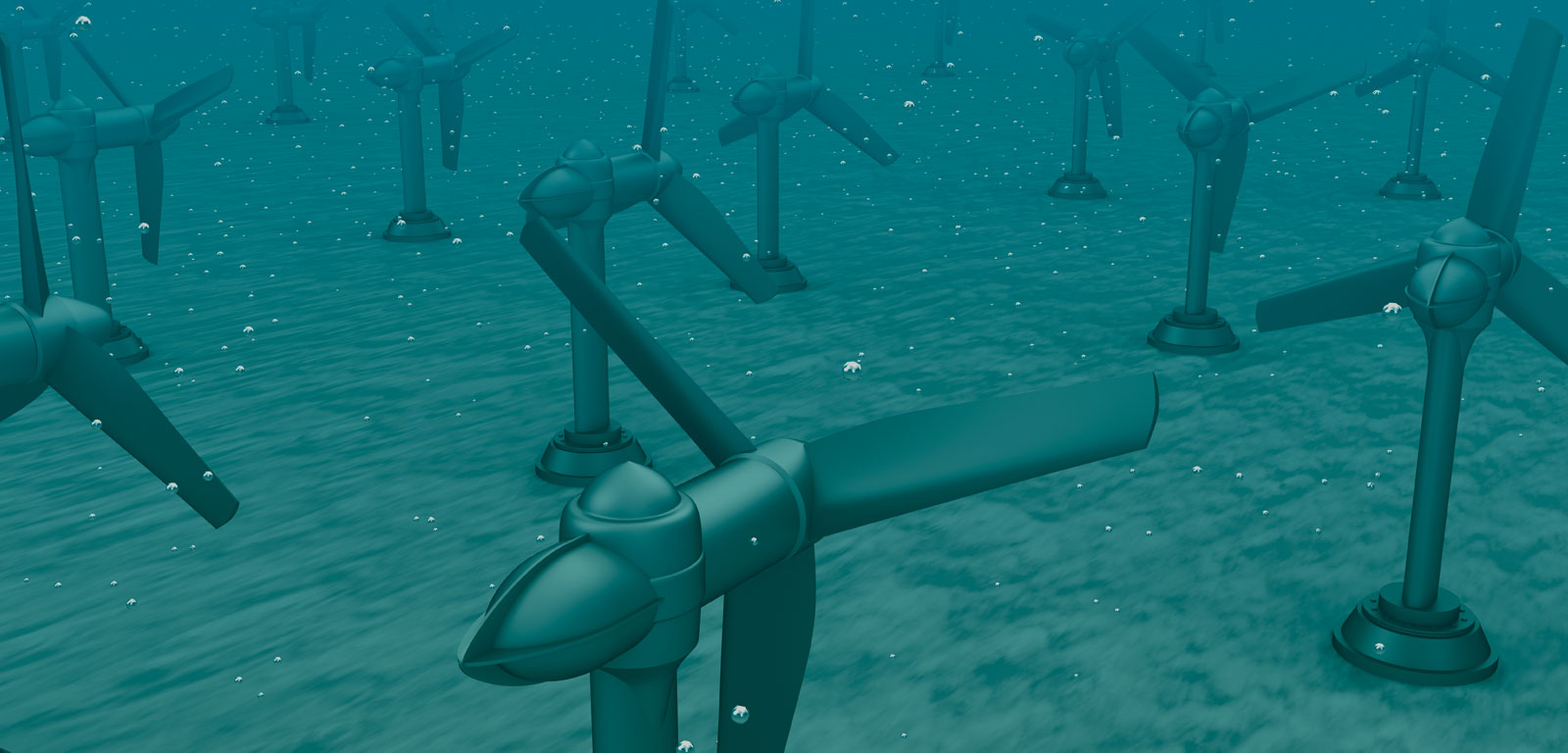Gaia
Fluidoen Mekanika Konputazionala Fluxu Zurrunbilotsuentzako
Gaiari buruzko datu orokorrak
- Modalitatea
- Ikasgelakoa
- Hizkuntza
- Ingelesa
Irakasgaiaren azalpena eta testuingurua
In the framework of renewable energies, the study of the effects of fluid dynamics is crucial for the efficiency and performance when designing a device for energy extraction. The course covers the fundamentals of the theory and numerical simulation of fluid flow, encompassing turbulence effects . The mesh generation process, including goal-oriented adaptive mesh refinement, will also be tackled, since it is an essential and time-consuming component in the design process. Meshless methods will be also discussed.The students will learn the fundamentals concepts and mathematical background of computational fluid dynamics (CFD). They will learn to set-up numerical simulations for fluid dynamics applications through practical hands-on sessions. They will be able to select the suitable numerical set-up for the different flow conditions. The basic knowledge will be provided for post-processing and evaluating the results in terms of numerical reliability, forces and performance of a designed geometry
.
Gaitasunak
| Izena | Pisua |
|---|---|
| Capacidad para aprender las ecuaciones fundamentales de la dinámica de fluidos, su derivación e interpretación física | 25.0 % |
| Capacidad para encontrar la solución a un problema práctico de aerodinámica, haciendo uso de una aproximación numérica adecuada | 25.0 % |
| Capacidad para manejar y comprender los conceptos básicos del desarrollo de un programa computacional para resolver las ecuaciones de la dinámica de fluidos | 25.0 % |
| Capacidad para producir un informe conciso y claro de los ejercicios a resolver, y poder debatirlo de forma oral | 25.0 % |
Irakaskuntza motak
| Mota | Ikasgelako orduak | Ikasgelaz kanpoko orduak | Orduak guztira |
|---|---|---|---|
| Magistrala | 18 | 35 | 53 |
| Ordenagailuko p. | 12 | 10 | 22 |
Irakaskuntza motak
| Izena | Orduak | Ikasgelako orduen ehunekoa |
|---|---|---|
| Azalpenezko eskolak | 18.0 | 100 % |
| Banakako lana | 10.0 | 0 % |
| Eskola magistralak | 18.0 | 100 % |
| Ikasketa sistematizatua | 35.0 | 0 % |
| Ikaslearen lan pertsonala | 10.0 | 0 % |
| Lanak ekipo informatikoekin | 12.0 | 100 % |
| Ordenagailuko praktikak | 0.0 | 0 % |
| Teoria | 0.0 | 0 % |
Ebaluazio-sistemak
| Izena | Gutxieneko ponderazioa | Gehieneko ponderazioa |
|---|---|---|
| Idatzizko azterketa | 50.0 % | 70.0 % |
| Txostenak eta azalpenak lantzea | 30.0 % | 50.0 % |
Irakasgaia ikastean lortuko diren emaitzak
Ability to learn the fundamental fluid dynamics equations, their derivation and physical interpretation.Ability to tackle the solution of a practical problem in fluiddynamics, by the use of suitable numerical approximation.
Ability to handle and understand the basics of the development of a computer program for solving the equations of fluid dynamics.
Ability to produce concise and clear report on the home assignments and to orally discuss it.
Ohiko deialdia: orientazioak eta uko egitea
The student's grade in the subject will be determined by means of the review and assessment of the evaluation tasks proposed throughout the course. The modality of the evaluable tasks consists of:- the resolution of exercises,
- the development of computer code that solves the problems raised,
- a written report consisting of the description, analysis and conclusions obtained in the resolution of the exercises and in the programming of the computer code and its implementation to solve the proposed cases.
The assessable tasks must be sent to the corresponding link of the egela/moodle platform within the announced deadline.
Ezohiko deialdia: orientazioak eta uko egitea
The criteria for obtaining the grade in the extra exam session will be the same as in the regular call.Irakasgai-zerrenda
1. Introduction to Conservation Laws in Fluid Mechanics.2. Viscous approximation and Navier-Stokes equations.
3. Finite Differences discretization method.
4. Finite Differences (exercises: advection-diffusion equation).
5. Finite Volumes method (openFoam)
6. Finite Volumes (exercises).
7. Turbulence modelling.
8. Finite Elements method (Galerkin formulation).
9. Finite Elements (exercises: FEniCS).
10. Lagrangian methods: Smoothed Particle Hydrodynamics and Vortex Methods.
Bibliografia
Nahitaez erabili beharreko materiala
Theoretical notes, examples and informatico code which can be found in the online teaching platform egela/moodle, https://egela.ehu.eusOinarrizko bibliografia
1. Ferzinger&Peric, Computational Methods for Fluid Dynamics, Springer2. Pope, Turbulent Flows, Cambridge Press.
1. Textbook: Blazek, J., Computational Fluid Dynamics: Principles and Applications, 3rd Edition, Butterworth-Heinemann, 2015.


